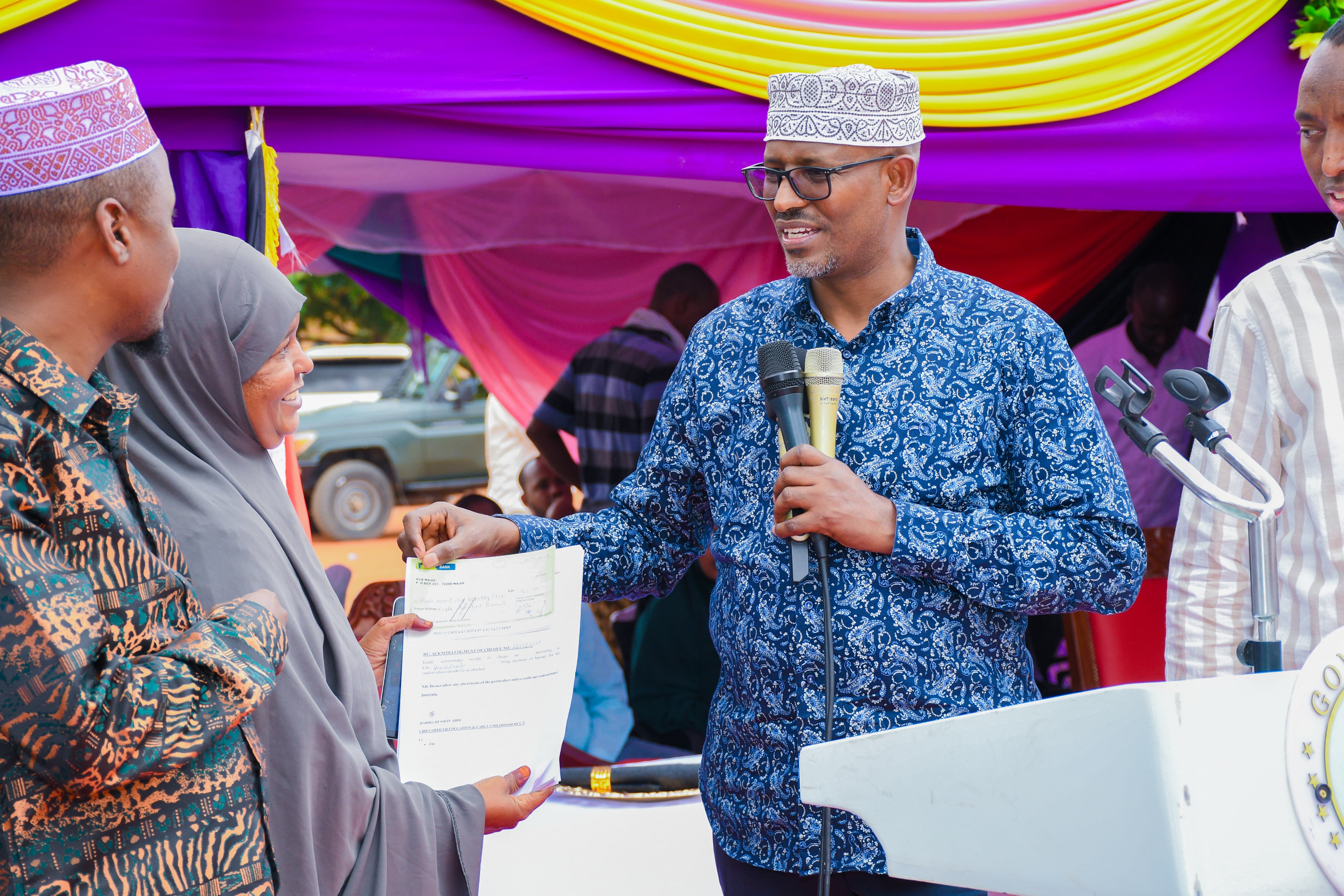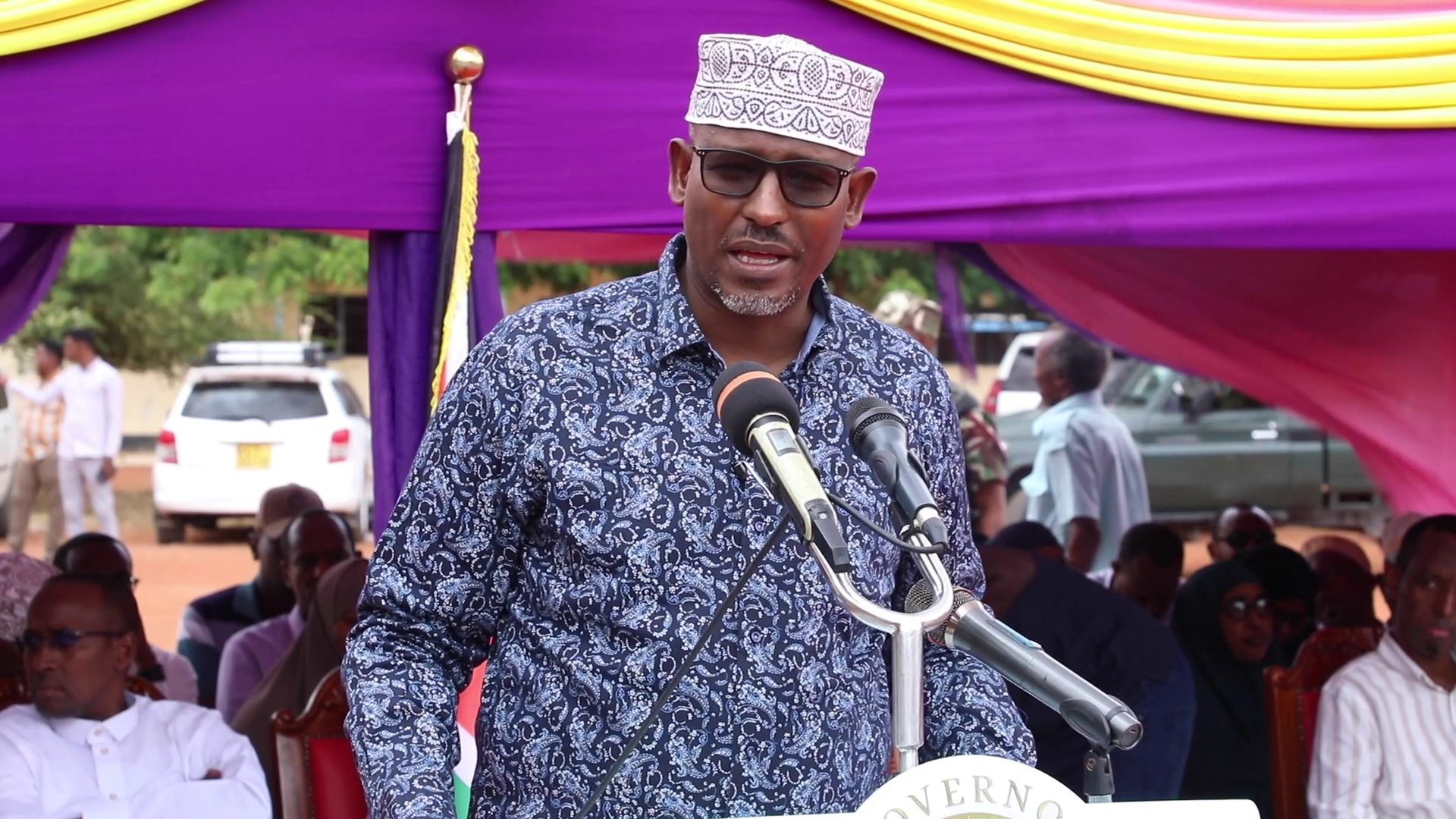 Governor Ahmed Abdullahi issuing bursary cheques to school heads in Wajir town.STEPHEN ASTARIKO
Governor Ahmed Abdullahi issuing bursary cheques to school heads in Wajir town.STEPHEN ASTARIKO  Governor Ahmed Abdullahi speaking in Wajir Town on
Tuesday./STEPHEN ASTARIKO
Governor Ahmed Abdullahi speaking in Wajir Town on
Tuesday./STEPHEN ASTARIKO Wajir Governor Ahmed Abdullahi has raised concern over the violent turn of events during Monday’s Sabasaba protests.
The county chief is suggestingthat unnamed politicians may be exploiting public unrest for selfish interests.
Speaking in Wajir town during the launch of the county bursary programme on Tuesday, Abdullahi, who also chairs the Council of Governors, expressed deep regret over the chaos, deaths and destruction witnessed across the country, particularly in Nairobi.
“We have not seen a commemoration of Saba Saba as bloody as the one of yesterday,” he said.
“Saba Saba happened 35 years ago as part of the second liberation, leading to the 2010 Constitution and the birth of devolution. This year’s events took us backward.”
The protests were marked by violent confrontations between demonstrators and police, with reports of fatalities and widespread property damage.
Businesses in affected towns remained shut, and security roadblocks were erected across major routes. However, counties in the North Eastern region remained calm.
Governor Abdullahi questioned whether the protests—largely attributed to frustrated Gen Z youth—truly reflected the voice of the young generation, or if they were being hijacked by political players for ethnic or personal gain.
“We are told these are Gen Z demonstrations. From where I stand, I believe there’s more to it than just a disgruntled youth population,” he said. “I see ethnic, toxic politics at play.”
He warned against framing national leadership through an ethnic lens, arguing that such divisions could tear the country apart.
“If we create the impression that Kenya can only be peaceful when led by people from certain regions, we are setting ourselves on a dangerous path,” Abdullahi cautioned.
“Yes, we have genuine problems—unemployment, inequality—but those issues didn’t begin with this administration and won’t end with it. We must speak honestly and find solutions together.”
While acknowledging the frustration among young Kenyans due to limited economic opportunities, the governor questioned the impact of violent protests in addressing their grievances.
“I want someone to explain how what happened yesterday solves the youth’s problems,” he said.
“We should not incite the youth to burn their country while hiding behind their pain.”
Without naming names, Abdullahi accused certain politicians of fueling the unrest while hiding behind the Gen Z label.
He cited examples of neighbouring countries like Somalia and Sudan to warn against descending into lawlessness driven by ethnic strife.
“We in this region understand the dangers of ethnic hatred. We border Somalia, and we’ve seen what conflict can do,” he said.
“We must remain sober. There are better ways to speak to our national challenges—ways that do not involve violence or the loss of life.”
The governor called for unity and sober dialogue among leaders and citizens alike, urging a peaceful path forward amid growing political tensions.











